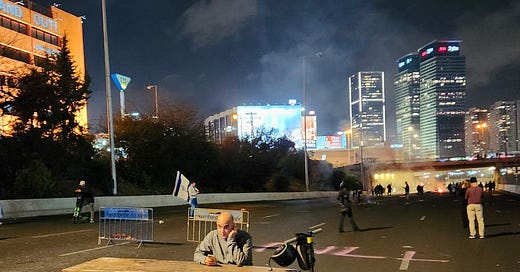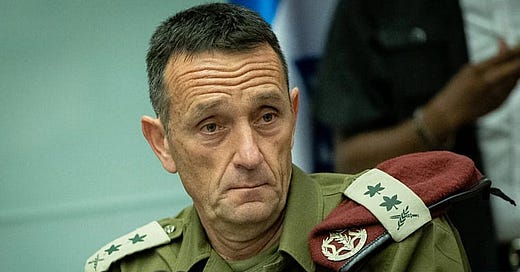

Discover more from Israel from the Inside with Daniel Gordis
"Shkhol"—English doesn't even have a word for it
Losing a child is a pain so searing that Hebrew has a word for that particular kind of grief.
Mishpachot shakulot is the Hebrew formulation. It’s usually translated as “bereaved families,” but that translation cannot convey the particular agony that shkhol in modern Hebrew connotes. Families can be bereaved for many reasons, of course. But in modern Israel, shkhol refers primarily to grief the follows the loss of a daughter or son, usually connoting violent death, typically in battle.
In English, "bereaved father” tells you nothing about what happened. In Hebrew, av shakul, which also means “bereaved father,” tells you everything.
We’re past the shloshim, the thirty day period during which one says kaddish for a son, daughter, brother, sister, spouse (it’s eleven months for a parent). So slowly, parents are beginning to talk more about the adult children they lost, what they have learned about their kids’ last moments, or how the way they raised their child led to the grief they now carry.
There are more interviews of this sort than one can count in Israel these days. In the printed papers, online new outlets, social media—you name it. We’ve selected two that are being much discussed and forwarded on Israeli social media. They’re very different from each other, intentionally. The first is the entire interview, the second is a portion of a much longer interview. To both, as usual, we’ve added English subtitles.
Israelis have discovered that the drive and commitment, passion and devotion of their grandparents’ generation never really died. It was dormant, perhaps, but now, even in their darkest days of grief, they are buoyed by stories of courage, of passionate belief in something greater than themselves.
Those who thought that the Israel made of that stuff was an Israel long gone were wrong. That Israel just needed to be awakened.
The tragedy and the miracle are both to be found in the enormity of the awakening.
Aner Shapira z”l was killed at the music-festival-turned-slaughterland in the Negev on what is now being called “Black Sabbath.” As you’ll hear, he saved many lives in his last minutes. Below, his parents meet some of those he saved for the very first time, and are shown a photo of their son—a photo they had never seen—perhaps just seconds before he died.
A brief postscript to that video.
Last night, we were at a neighborhood memorial for people from the area who have been killed. There was some singing, a brief prayer, and speeches. The British mother of a lone soldier. Another mother. The grandmother of another soldier. Others. It was agonizing. We got home and I just went to sleep. I couldn’t bear any more reality.
Aner’s father, pictured in the video above, also spoke. When he got to the makeshift stage, with his very young daughter (Aner’s sister) at his side, he put a large canvas photo in front of the podium.
It was the photo he’d first seen in the video.
The next interview is very, very different. The mother, Galit Ben-Moshe, lost her son, Ariel z”l. I imagine that many of us cannot relate to her way of coping, but relating or not relating, agreeing or not agreeing, is not the point.
The point is that there are powers in this country that are simply indescribable. All we can do is watch, listen, think. And honor.
That’s it for today. After all, what else is there really to say?
As explained above, Shalem College is making use of its financial infrastructure to help the Hamal (which we covered in a previous post) collect funds, and to get 100% of the funds to the Hamal immediately. To support the Hamal, use the link immediately below. There is a place on the web page to note that you want your contribution to be directed to the war effort.
If you’re just joining us, Israel from the Inside typically posts a written column on Mondays and a podcast on Wednesdays. That is obviously irrelevant for the time being.
We’ve delayed all the podcasts that were ready to go, because the people whose stories they tell deserve to tell them when we all have the bandwidth to hear. Hopefully, that will return some day.
In the interim, we’ll post as possible. Here in Israel, there are non-stop funerals to go to, shiva homes to visit, grandchildren to help care for while sons and daughters are in the army, so we’ll see.
Schedules are the least of our worries.
Impossible Takes Longer is now available on Amazon and Barnes & Noble and at other booksellers.
Our Twitter feed is here; feel free to join there, too.
Our Threads feed is danielgordis. We’ll start to use it more shortly.
Subscribe to Israel from the Inside with Daniel Gordis
Israel from the Inside is for people who want to understand Israel with nuance, who believe that Israel is neither hopelessly flawed and illegitimate, nor beyond critique. If thoughtful analysis of Israel and its people interests you, welcome!




















